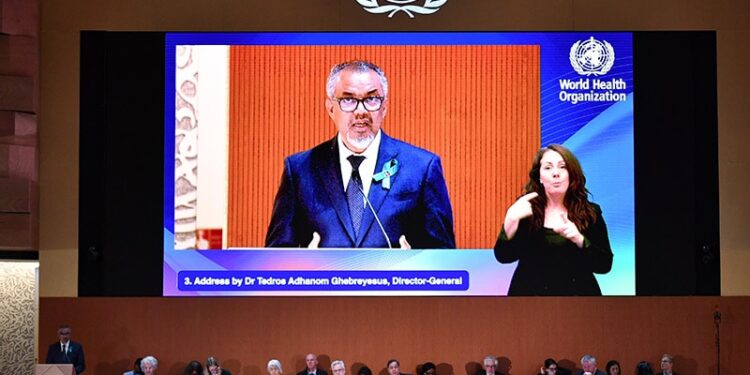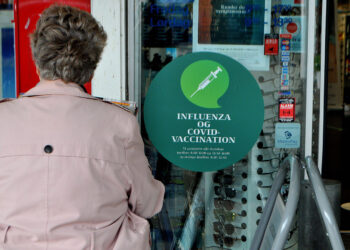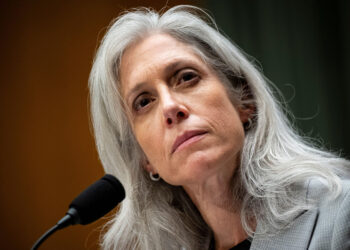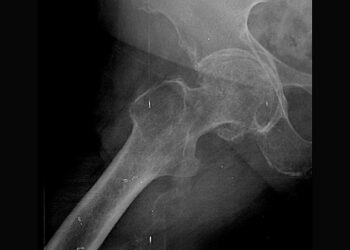On May 20, 2025, member states of the World Health Organization (WHO) adopted the world’s first Pandemic Agreement with 124 votes in favour and 11 abstentions.
The landmark decision by the 78th World Health Assembly culminates in more than 3 years of intensive negotiations launched by governments in response to the devastating impacts of the COVID-19 pandemic and driven by the goal of making the world safer from and more equitable in response to future pandemics.
During the vote in Geneva, Italy abstained along with 10 other countries, including Iran, Singapore, Russia, Israel, Poland, and Slovakia.
The Italian government justified its choice by emphasising the need to protect national sovereignty, despite Italy being one of the main advocates of the initiative after the COVID-19 pandemic.
According to the countries that voted in favour, the final version of the agreement already included explicit clauses to safeguard national autonomy: The WHO cannot impose decisions on governments regarding lockdowns or other health measures.
A Partial Surprise
This news was not entirely unexpected. During the first plenary discussion on the draft of the Pandemic Agreement in 2024, the Italian Minister of Health Orazio Schillaci, stated that there were too many critical points.
“We expect the redefinition of a clear roadmap, allowing adequate time to reach a consensus that Italy considers ratifiable, including the necessary improvements to guarantee health for all,” Schillaci had noted at that time.
After another year of negotiations, Italy kept its stance:
“With today’s abstention, Italy intends to reiterate its position regarding the need to reaffirm the States sovereignty in addressing public health matters,” read a statement from the Health Ministry.
“We appreciate,” the statement reads, “that this principle has been included in the text of the Pandemic Agreement. We also welcome that, in announcing the conclusion of the negotiations, the WHO specified that the Pandemic Agreement does not entitle the WHO to direct, order, alter, or prescribe national laws or policies or mandate States to take specific actions, such as ban or accept travellers impose vaccinations or therapeutic or diagnostic measures, or implement lockdowns. We also believe that the agreement shall be implemented in full respect of the principles of proportionality and protection of fundamental rights, including the protection of personal data and individual freedom. Keeping in mind these principles, Italy looks forward to continuing working together with other WHO member States to define the remaining pending issues, which, in our view deserve further investigation.”
However, the conclusion is negative: “Holding these principles, Italy hopes to continue to collaborate with other WHO member states to define the outstanding issues that, in our opinion, deserve further investigation.”
When explicitly asked by the press about outstanding issues, the minister did not give an answer.
The choice was entirely political is confirmed by the statements of Marco Lisei, senator of Fratelli d’Italia and president of the Parliamentary Commission of Inquiry into the management of the COVID emergency, who stated that.
“Italy, even on the front of health prophylaxis strategies, has finally returned to play a role no longer as a gregarious but as a protagonist in the international forum, and this episode proves it.”
He acknowledged that the text has now improved thanks to Italy’s interventions, but still not enough. It was right to abstain, also in view of upcoming appointments and negotiations.
On the other side, there is the voice of the opposition: “The choice to abstain on the global pandemic plan promoted by the WHO is very serious. The Meloni government decides to isolate the country to follow the denialist and anti-scientific sirens. No lesson from COVID, rather a closure in the face of the reasons of science and the need to coordinate strategies, resources, and research at a global level,” said Chiara Braga, Democratic Party leader (PD) in the Chamber of Deputies.
Beatrice Lorenzin, vice president of the PD senators and former Health Minister, called it “an incomprehensible and anti-historical choice.”
A Success for WHO
The WHO Pandemic Agreement is a crucial step in restoring the WHO’s leadership after years of uncertainty, worsened by the disengagement of the United States during the Trump Administration.
The WHO Pandemic Agreement is the second international legal agreement negotiated under Article 19 of the WHO Constitution, the first of which is the WHO Framework Convention on Tobacco Control, adopted in 2003 and came into force in 2005.
The WHO’s financial situation also shows signs of improvement as member states pledged at least $170 million in additional funding to support the Fourteenth General Programme of Work, which aims to save up to 40 million lives over the next 4 years.
In addition, member states approved a 20% increase in fixed quotas, setting the budget for 2026-2027 at $4.2 billion. This follows a similar planned increase for 2024-2025.
Agreement
The agreement aims to strengthen the world’s ability to prevent and respond to pandemics, based on the principles of “equity, solidarity, transparency, and respect for human rights.” It is designed to be operational during and between pandemics, ensuring ongoing and structured preparedness.
Equity is central to this agreement. It acknowledges that unequal access to vaccines, diagnostics, and treatments during the COVID-19 pandemic has resulted in serious and lasting consequences.
The new agreement requires signatory countries to ensure equitable access to pandemic health products, to facilitate “local and regional production” in developing countries, to promote the transfer of technology and know-how, and, finally, to ensure “transparent benefit sharing” arising from research on pathogens.
It also launches a process to draft and negotiate a Pathogen Access and Benefit-Sharing system (PABS) through an Intergovernmental Working Group.
According to the agreement, pharmaceutical manufacturers participating in the PABS will play a key role in ensuring equitable and timely access to pandemic-related health products. At least 20% of the real-time production of safe, quality, and effective vaccines, therapeutics, and diagnostics must be allocated to the system, including 10% as a donation and the rest at affordable prices.
The agreement also established a Global Supply Chain and Logistics Network coordinated by the WHO to ensure rapid, safe, and equitable access to health products in emergency settings. Mechanisms will be put in place to identify logistical barriers, estimate supply and demand, manage international stocks, and facilitate supplies, with particular attention paid to the most vulnerable countries.
Health Systems and Funding
The text includes measures to improve the “resilience of national health systems,” strengthen local healthcare and primary care, invest in healthcare personnel, and improve regulatory and surveillance abilities. It also promotes the one-health approach, which integrates human, animal, and environmental health to prevent pandemics.
Additionally, a financial coordination mechanism will be established to ensure predictable and sustainable resources, particularly for low- and middle-income countries.
The mechanism also aligns with the requirements outlined in the International Health Regulations (2005).
The agreement provides for the establishment of a Conference of the Parties, which will oversee implementation, update guidelines, coordinate financial mechanisms, and assess the effectiveness of the agreement every 5 years. Each partner state is required to submit periodic reports on progress made.
Implications for Italy
Italy’s absence from the list of signatory countries does not automatically mean complete disengagement. However, it could exclude Italy from participating in the multilateral governance of the new system. This may limit priority access to international stockpiles during emergencies and reduce opportunities for structured scientific and financial cooperation with other member states.
The medical and scientific communities have reacted promptly. Walter Ricciardi, MD, MPH, MSc, a former scientific advisor to the Italian Minister of Health and an advocate of the agreement, said, “A choice that has no scientific or public health explanation. Just look at the bad company we voted with.”
“There is no denying that this pandemic agreement is a significant step forward. I do not know what really underlies the decision to opt out. But as a doctor and a public health representative, it is a decision that leaves me very perplexed,” noted Franco Locatelli, MD, Head of the Department of Paediatric Haematology at Bambino Gesù Children’s Hospital in Rome, Italy, and former president of the Higher Council of Health.
This story was translated from Univadis Italy.
Source link : https://www.medscape.com/viewarticle/italy-abstains-whos-pandemic-pact-sovereignty-or-unity-2025a1000d75?src=rss
Author :
Publish date : 2025-05-26 10:48:00
Copyright for syndicated content belongs to the linked Source.














